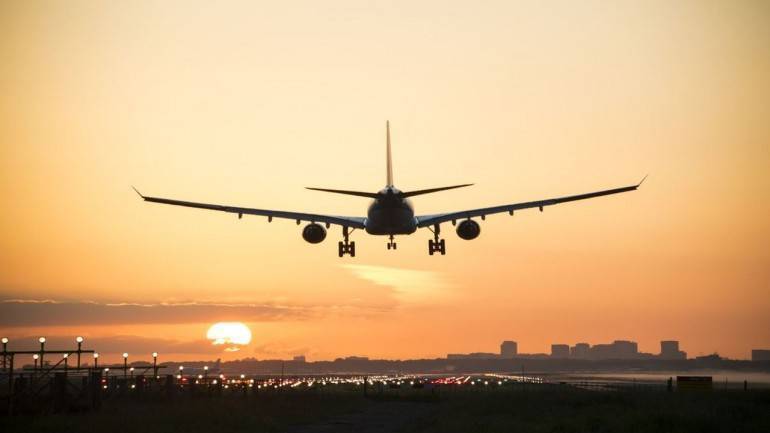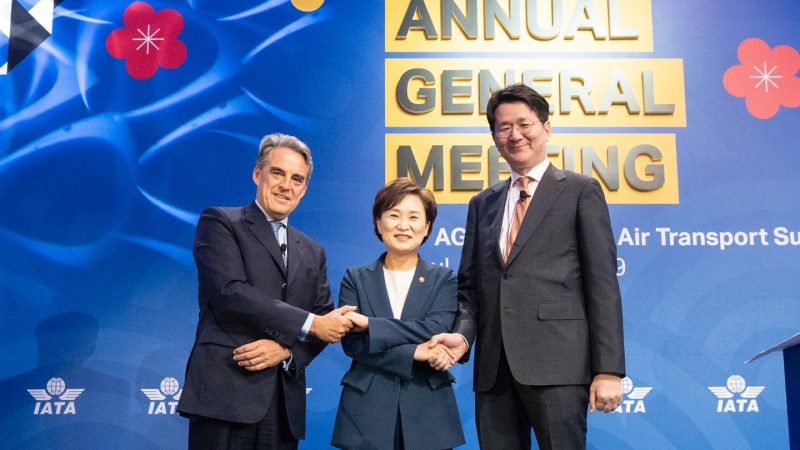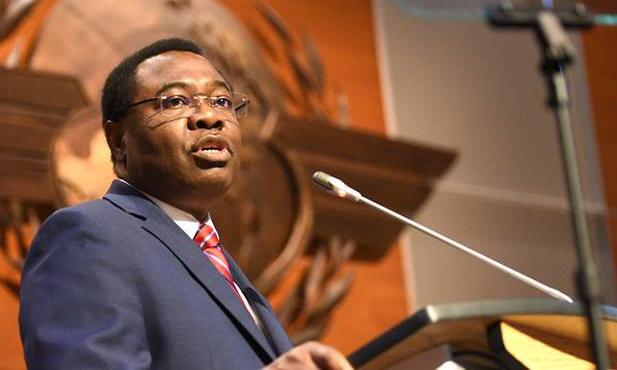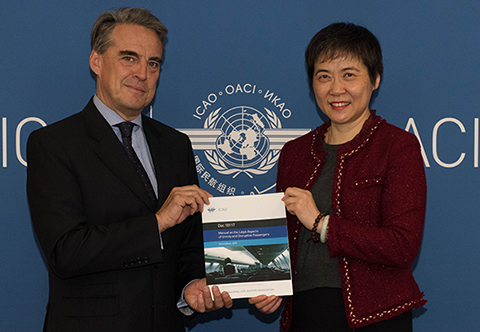The stage has been set for progress toward the resolution of Asia-Pacific’s aviation capacity constraints at the 56th Conference of Directors General of Civil Aviation, Asia and Pacific Region (DGCA-APAC/56) in Kathmandu, with ICAO Council President Dr. Olumuyiwa Benard Aliu stressing the pivotal importance of cooperation towards ICAO compliance as the only sustainable solution to the challenges faced by region’s States.
“Cooperation and collaboration have proven tremendously successful to helping all member States in the contemporary global aviation system live up to their ICAO obligations,” Dr. Aliu underscored in his opening remarks. “These are important priorities to consider today given the critical relationship between the concerted actions taken by governments to invest in and improve their levels of ICAO compliance, and the resulting increases in international air connectivity which are so essential to the prosperity of all States, and especially those with Landlocked or Small Island Developing status.”
The Prime Minister of Nepal, Mr. K.P. Sharma Oli, attended Dr. Aliu’s remarks, as did Nepal’s Minister and State Minister for Culture, Tourism, and Civil Aviation, Mr. Yogesh Kumar Bhattarai and Mr. Dhan Bahadur Budha. Nepal’s commitments to ICAO cooperation were in fact centre-stage at DGCA-APAC/56, with the State’s celebrations of ICAO’s 75th Anniversary providing particularly energetic momentum to discussions. These comprised the hoisting of the anniversary flag at the summit of Mount Everest by Mr. Pasang Tendi Sherpa, and they were echoed at a subsequent bilateral meeting between the ICAO Council President and the Minister of Foreign Affairs of Nepal, Mr. Pradeep Kumar Gyawali.
ICAO compliance, especially in the area of safety and security oversight, is fundamental to both global and regional harmonization. Progress in this area is particularly pertinent in the Asia-Pacific Region, given the significant State-to-State diversity both in terms of economic capacity and development and with respect to the current reality of civil aviation infrastructure and regulatory oversight, such as the lack of a regional safety oversight body. In recognition of the associated challenges, ICAO is implementing the No Country Left Behind initiative in the region, and has strengthened its regional office. Both of these endeavours have proven highly successful at helping Member States to meet their compliance obligations.
THE İMPORTANCE OF COOPERATİON WİTH PRİVATE SECTOR
Dr. Aliu also pointed to the importance of cooperation with private sector partners. “Industry inputs are invaluable to our work in deriving practical solutions to the newest challenges confronting international flight, and they can also provide important assistance in terms of projections and data relating to our sector’s future forecast needs for the Next Generation of Aviation Professionals,” he said.
Human resource challenges are in fact a very critical issue for many States where capacity constraints are concerned. It involves their responsibilities to not only prepare and train but also to employ and retain the increasingly-skilled personnel civil aviation requires. In this regard, ICAO is working to help States define their specific needs. For example, 14 Pacific Islands Developing States are participating in ICAO’s on-going Aviation Needs Analysis Study.
Concluding his remarks, Dr. Aliu stressed that these and other compliance-related issues can be addressed through a harmonized and concerted effort to foster and implement innovative technological solutions. He gave the use of blockchain technologies “to monitor and manage the incredible amount of documentation and data we collectively generate” as a pertinent and important example.
TECHNOLOGİCAL EVOLUTİON WİLL PRESENT CHALLENGES
Nonetheless, technological evolution will present challenges in terms of the identification of convergent and global aviation solutions that preserve the harmonization at the foundation of the contemporary aviation system, while practically applying as well to divergent local challenges and developments.
“We need to establish a comprehensive sectoral architecture which will provide a secure core foundation for sustainable air transport digital interoperability,” Dr. Aliu said. “Innovation shouldn’t only be a priority for the developed world. Developing countries also stand to benefit significantly from the transitions now ongoing, notably as new and more cost-effective innovations permit them to leapfrog legacy air transport systems.”
Concluding on this topic, Dr. Aliu cautioned against “excessive regulatory interventions” and promised that “ICAO will do more to provide a platform for a practical and helpful exchange of ideas and best practices, both for regulators and innovators alike.”
“We have always achieved our greatest air transport progress when we have approached our challenges together, as a single and unified sector, and I could not imagine a more exciting time for ICAO to unite our States and industry partners around these very exciting developments,” Dr. Aliu declared.







